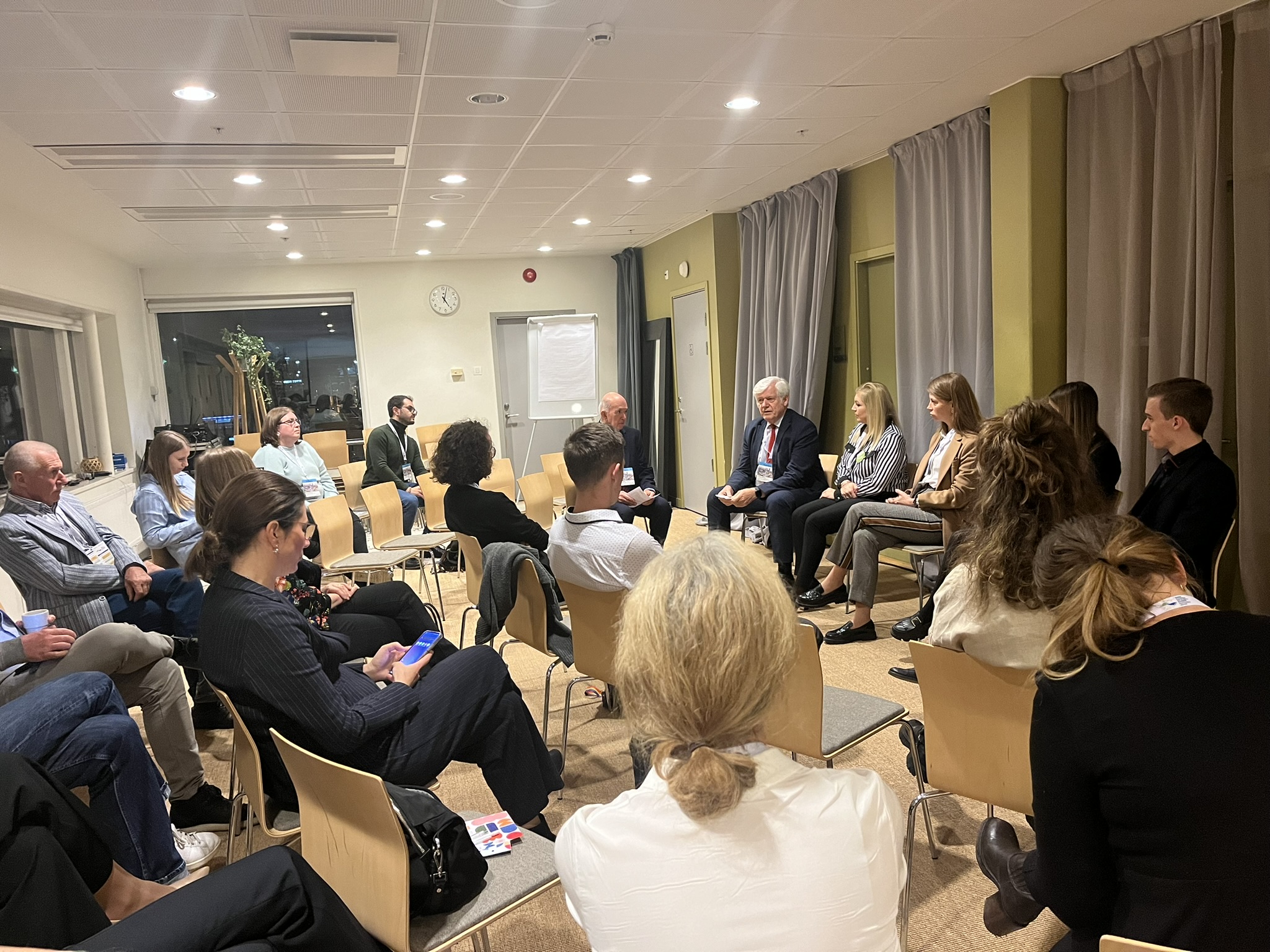This year the EU Strategy for the Baltic Sea Region (EUSBSR) Annual Forum and Engagement Day was held in Visby, Sweden on 29-31 October 2024. The key words were Sustainability, Resilience and Security.
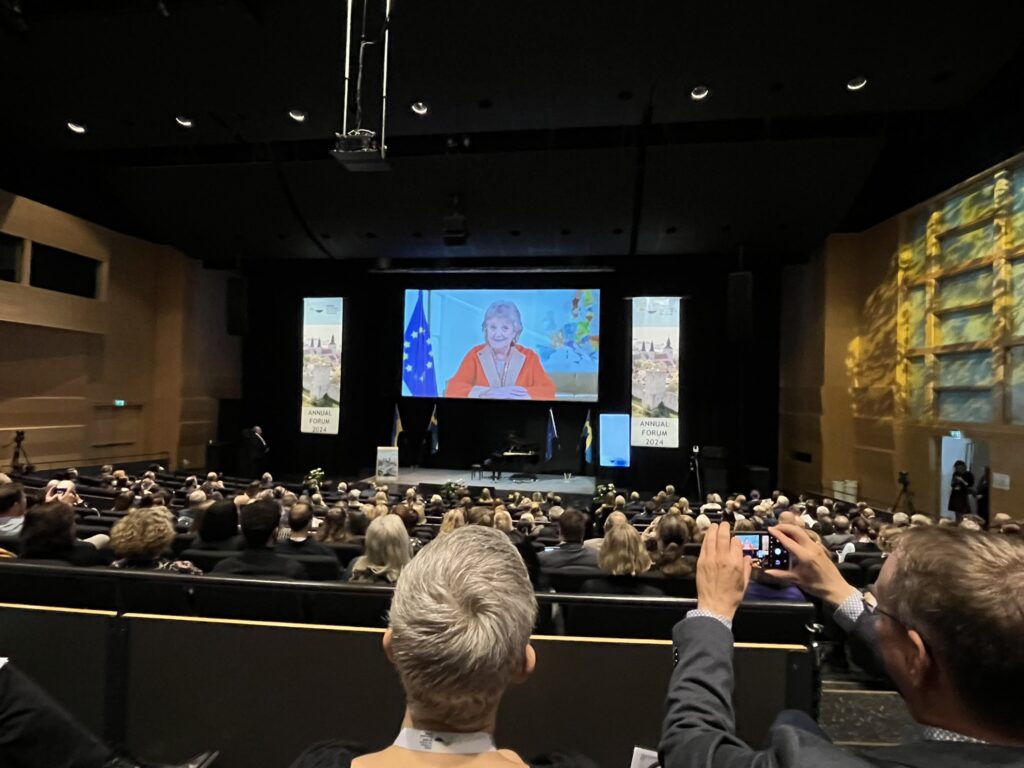
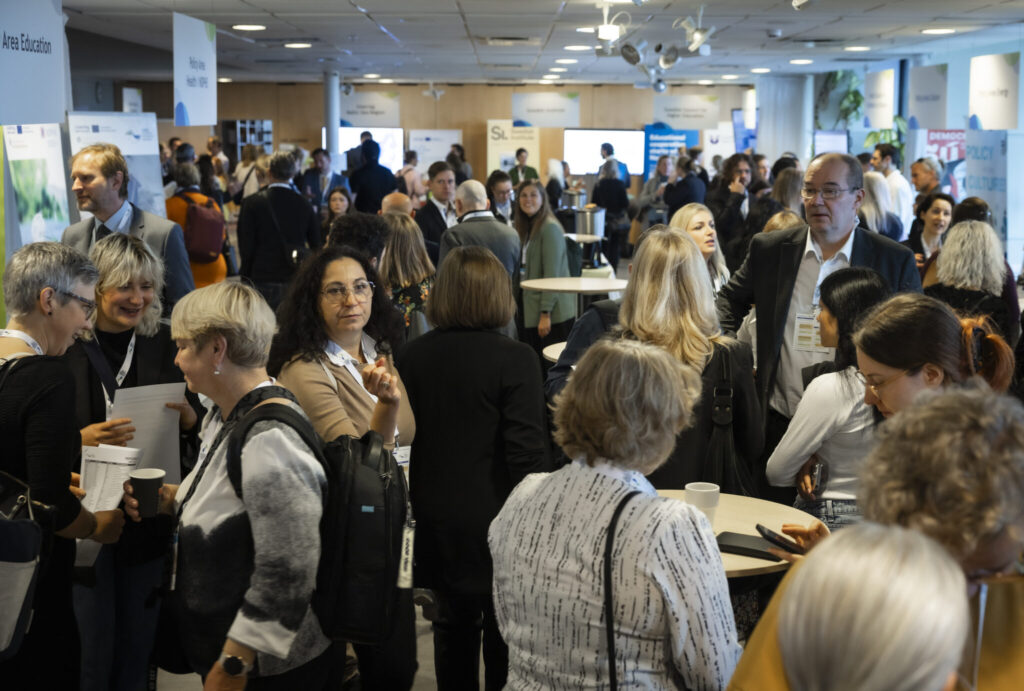
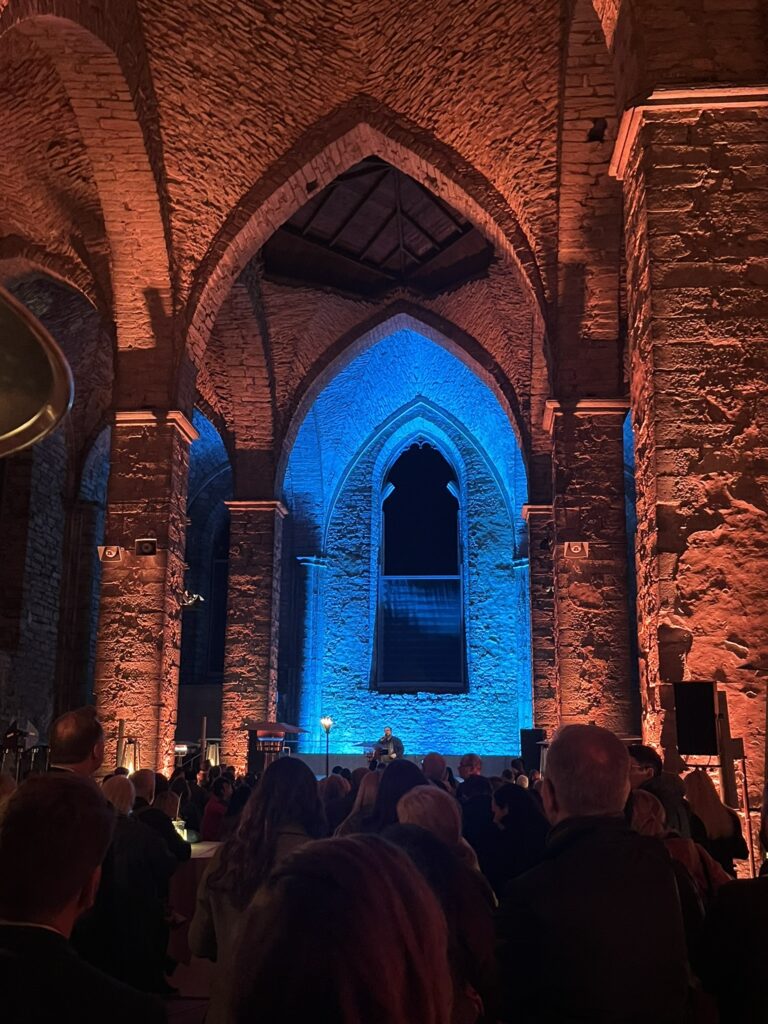
European House Budapest was actively involved in the programme and on 30 October hosted a parallel session titled ”From Vision to Collaborative Practice – Civil Society Cooperation among Macro-Regions”.
By today the EU policy-making has reached a critical stage where the limitations of traditional approaches and methods are clearly manifested. There is a new political reality in Europe. Combined and reinforced efforts of all actors are needed to maintain and safeguard European democracy and our commonly shared values. The reinvented EU macro-regional idea has the potential to successfully address the challenges Europe face. The novelty of our approach is that it brings together stakeholders from all the four macro-regions: the Baltic Sea, the Danube, the Adriatic-Ionian and the Alpine. It is in this spirit that we secured the participation of young people from the other three macro-regions at this event.
The session successfully focused on
- confirming the readiness of civil society organisations (CSOs) together with other stakeholders to contribute creatively to the repositioning and invigorating EU macro-regional strategies,
- providing a forum for CSOs to exchange information and best practices leading to collaborative and innovative programmes across the macro-regions,
- contributing to the elaboration of the 5th Report of the Commission on the implementation of MRS to be released at the beginning of 2025,
- presenting and developing further an MRS civil society network.
Dr András Edelényi, Member of the European Economic and Social Committee, Brussels underlined the readiness of EESC in shaping and implementing EU macro-regional strategies as highlighted in the latest MRS Implementation Report of the Commission.
Ukraine was also high on our agenda. On the question of what can citizens do in solidarity with Ukraine Nadija Afanasieva, Ukrainian Institute for International Politics, Ukraine (EUSDR) answered “fight systematically against fake news and look for reliable sources of information”.
The EUSAIR was represented by Lara Kodrin from Slovenia, POPRI Initiative Ambassador. She stressed that innovation and young people should go hand in hand and this could be an overarching approach among macro-regions producing concrete results.
Until recently Thomas Keuthen from Germany was member of the Alpine Youth Council (EUSALP). His advice was to focus on education as the various EU programmes provide appropriate tools to broaden the horizon and link macro-regions.
Magda Leszczyna-Rzucidło, (BISER, Gdansk, Poland) invited all participants to Pomorskie region and Gdansk to the EUSBSR Annual Forum in October 2025. She promised to be as attentive hosts as the Swedish and the region of Gotland was in 2024.
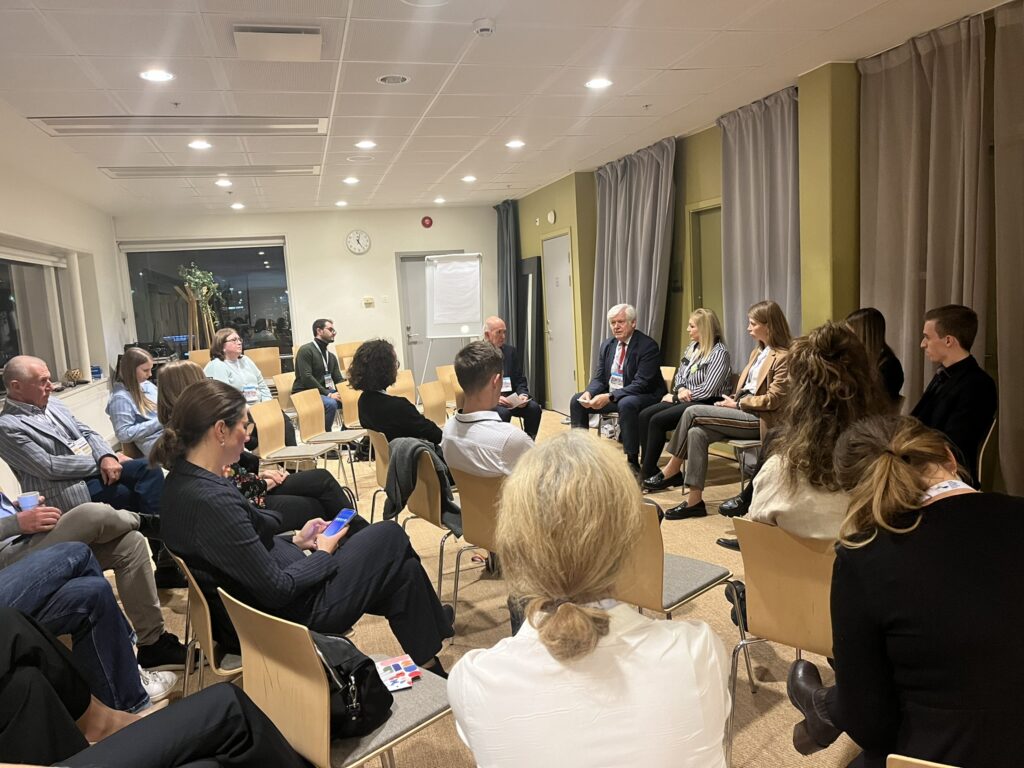
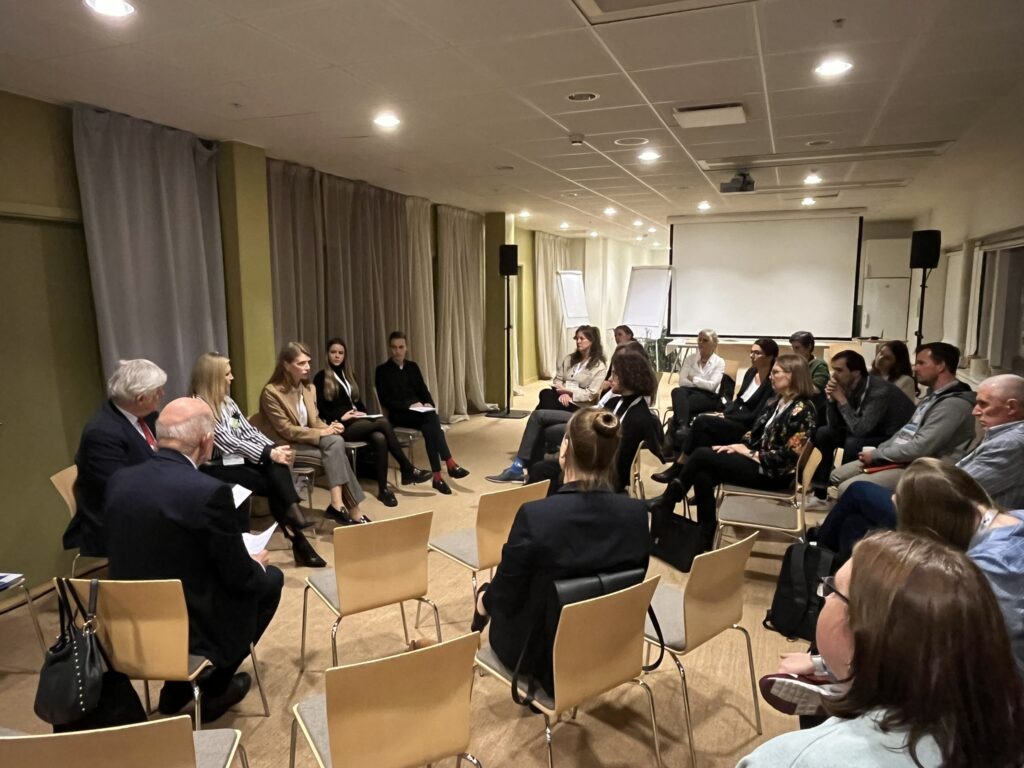
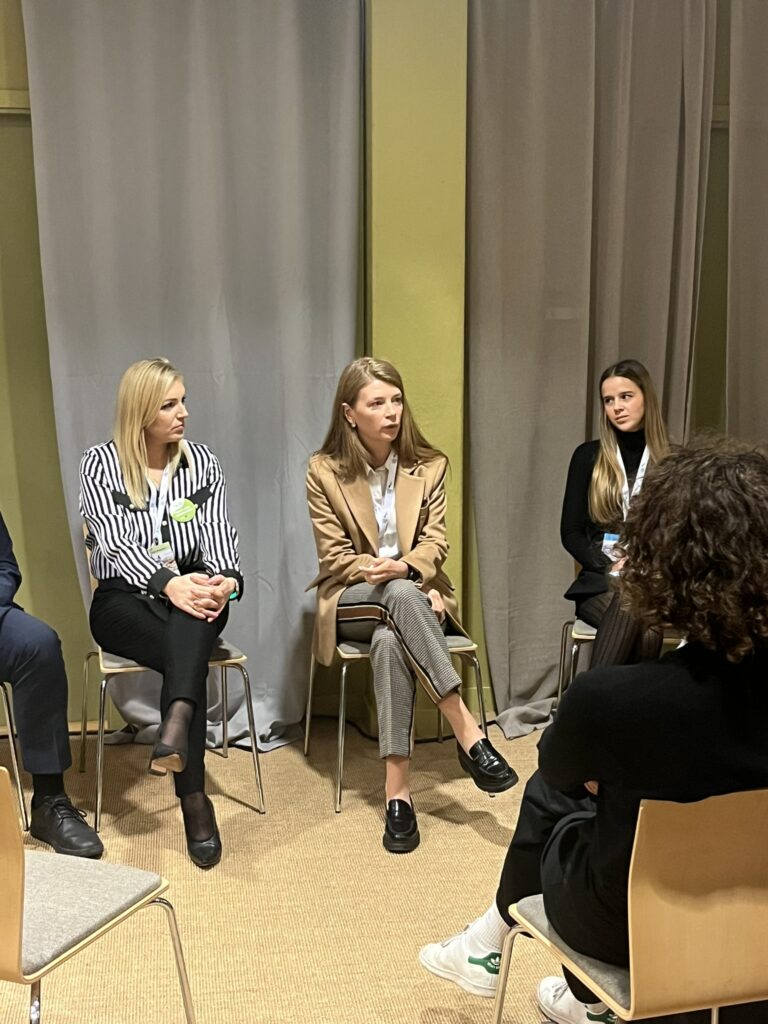
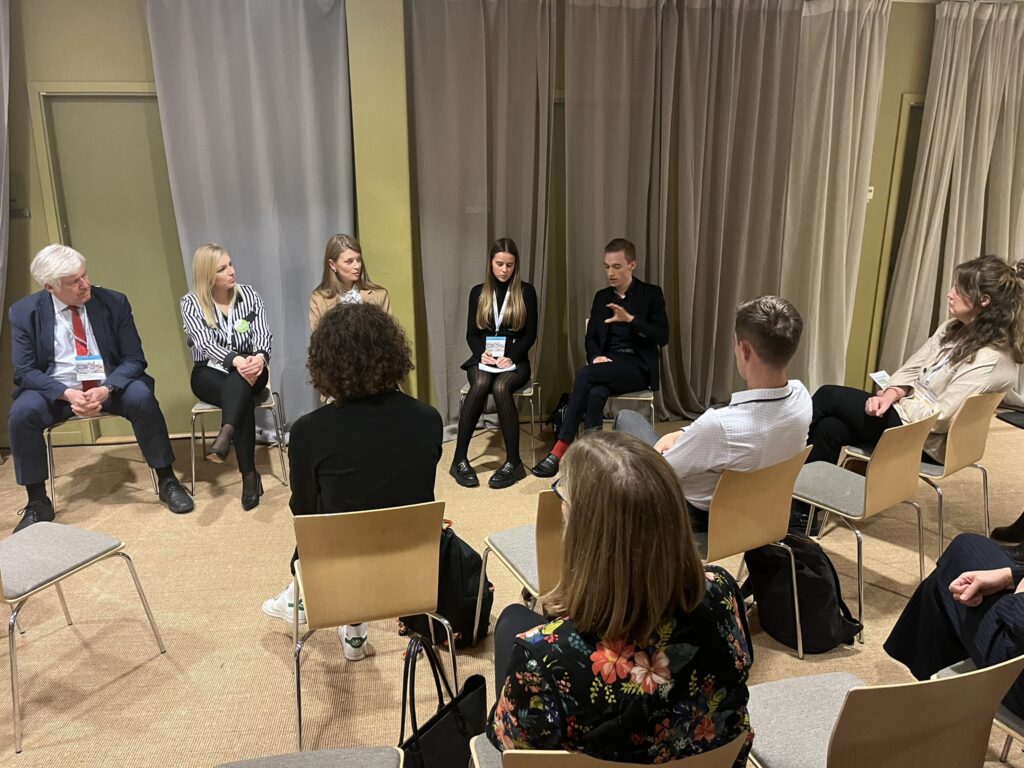
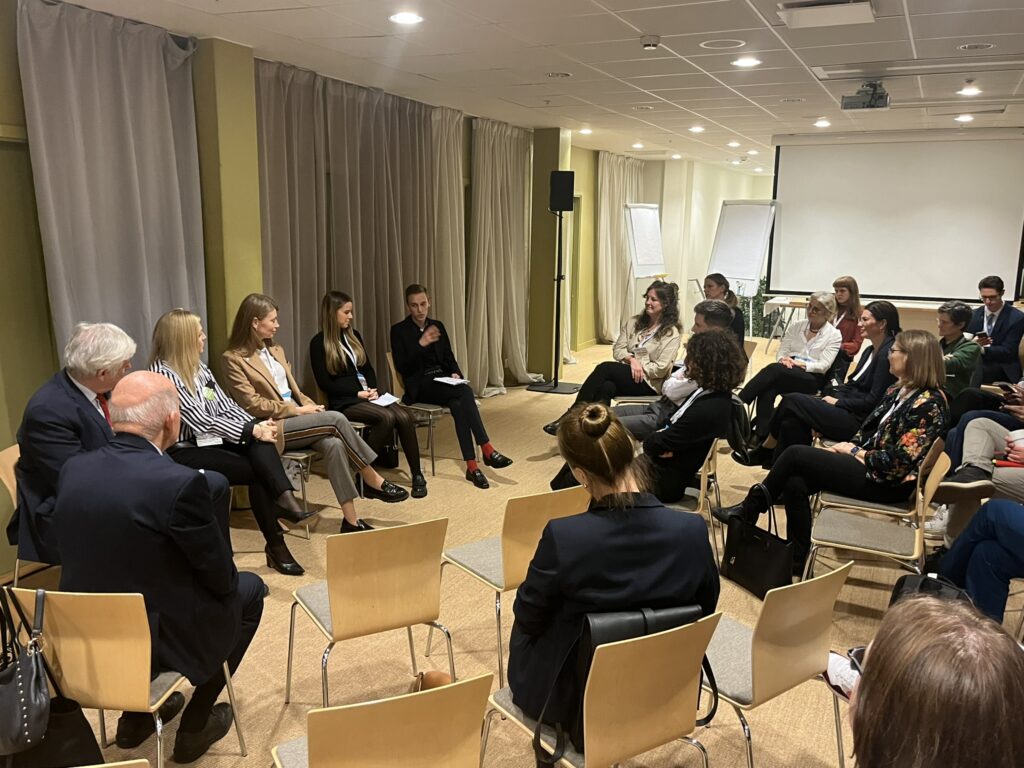
During the second part of the session we involved participants using the yes or no question method resulting on a lively debate whether to have a new macro-regional strategy or not.
The session was moderated by Miklos Barabas (European House Budapest), initiator of the MRS civil society network, an open and inclusive collaborative platform. This new arrangement is on its way to prove its usefulness in promoting the macro-regional agenda.
Together with Norden Association Sweden and the Council of the Baltic Sea States (CBSS) European House Budapest also hosted a special workshop on youth participation during the Engagement Day on 29 October 2024. Our take on that session will be published in the November issue of Connect Monthly.
